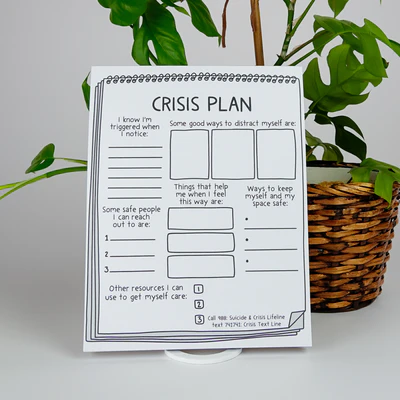Completing a treatment program—whether inpatient, PHP, or IOP—is a huge milestone. But the journey doesn’t end when the discharge papers are signed. In fact, what happens after rehab often plays a bigger role in determining long-term recovery success.
At Altura Recovery, we believe in planning for what’s next before you ever leave treatment. Our team supports every client with a customized aftercare plan to help them maintain progress, avoid relapse, and rebuild a life worth living.
Recovery is not a destination—it’s a daily process. Once structured treatment ends, it’s common to feel overwhelmed, uncertain, or even anxious about staying sober. That’s why aftercare matters:
Without aftercare, people often fall back into old routines. With it, they continue growing.

There’s no one-size-fits-all path after treatment. Your next step depends on your progress, your support system, and your goals. Here are the most common next phases:
Sober living provides a structured, substance-free home with daily routines, curfews, peer support, and drug testing. It’s ideal for those who want continued accountability.
Learn more about Sober Living and Transitional Housing
If you were in residential or PHP care, stepping down to an IOP (3 days/week) or SOP (1–2 sessions/week) helps you maintain therapeutic support while returning to daily life.
Ongoing therapy helps address deeper trauma, anxiety, or depression. You might also continue seeing a psychiatrist for medication support if that’s part of your care plan.
Coaching bridges the gap between treatment and real life. It’s focused on time management, job search, budgeting, and life planning.
Many people benefit from ongoing peer-led support like AA, NA, SMART Recovery, or recovery churches. These meetings provide connection, structure, and hope.
Outside Resource:SMART Recovery
Even with the best intentions, many people face challenges in early recovery:
We normalize these feelings. They’re not signs of failure—they’re signs that you need support.

At Altura Recovery, we help each client develop a personalized aftercare plan that may include:
Our goal is to keep you connected—to care, to community, and to yourself.

Relapse is not the end. It’s a signal. It tells us that something in the plan needs adjusting. If relapse happens:
There is no shame in starting again. The only failure is giving up entirely.
It’s tempting to believe that finishing rehab means the problem is “fixed.” But healing takes time. Families can help by:
Do I have to do sober living after rehab?
Not always—but it’s strongly recommended, especially in early recovery. It helps prevent isolation and keeps you grounded.
Can I go back to work or school after rehab?
Yes. Many of our clients return to work or school while continuing IOP or SOP for support.
What if I feel overwhelmed after leaving rehab?
That’s completely normal. Reach out. Don’t try to handle it alone. We’re here to help.
Do I need to stay in therapy forever?
Not necessarily. Many people taper therapy over time. The goal is to build tools that help you thrive independently.
Leaving rehab isn’t the end—it’s the beginning of a new chapter. Whether you move into sober living, start therapy, or build a support team, the key is to stay connected.
We’re here to help you find structure, healing, and momentum. Recovery doesn’t have to be lonely. And you don’t have to figure it out alone.
Schedule a Discovery Call to start your aftercare planning.
Aftercare is a critical component of the recovery journey, providing the necessary support and resources to help individuals maintain sobriety after leaving rehabilitation. Understanding the various aftercare options available can empower clients to make informed decisions about their recovery path.
At Altura Recovery, we offer a range of aftercare options tailored to meet individual needs, including sober living homes, ongoing therapy, and community support groups. Each option is designed to reinforce the skills learned during treatment and provide a structured environment that fosters personal growth and accountability.
Aftercare serves as a bridge between the structured environment of rehabilitation and the real world, where challenges and triggers may arise. It is essential for individuals to recognize the significance of aftercare in sustaining their recovery and preventing relapse.
Research shows that individuals who engage in aftercare programs have higher success rates in maintaining sobriety. By participating in therapy sessions, support groups, and other aftercare services, clients can build resilience, develop coping strategies, and create a supportive network that encourages lasting recovery.
There are various types of aftercare support available to individuals transitioning from rehabilitation. Each type offers unique benefits and can be tailored to fit the specific needs of the individual, ensuring a comprehensive approach to recovery.
Common aftercare options include sober living environments, which provide a structured and supportive living situation, ongoing therapy to address emotional and psychological needs, and peer-led support groups that foster community and accountability. These resources work together to create a holistic support system for lasting recovery.
Family plays a crucial role in the recovery process, offering emotional support and encouragement to their loved ones. Understanding how to effectively support someone in recovery can make a significant difference in their healing journey.
Families can assist by educating themselves about addiction and recovery, maintaining open lines of communication, and participating in support groups designed for families of individuals in recovery. By creating a nurturing environment and being actively involved in the recovery process, families can help their loved ones feel supported and understood.
houston, therapy, mental health, substance abuse, dual diagnosis, health, addiction, psychiatry, patient, community, php, insurance, cenikor foundation, dialectical behavior therapy, substance, iop, employer, counselor, alcohol, relapse, peer support, education, social work, job description, greater houston, behavior, crisis intervention, sobriety, health insurance, substance dependence, physical therapy, psychology, injury, medication, humana, drug, opioid, coping, anxiety, rehab, texas rehab centers, bay area recovery, outpatient program, treatment programs, mental health treatment, treatment centers, inpatient, yoga, physician, music therapy, aetna, positive psychology, experience, gender, healing, recreational therapy, brain, payment, understanding, philosophy, neuron, health care, root, pain, meditation, motivation, mind, stress, evaluation, optum, fee, information, cost, clinician, methadone, length of stay, internet, opiate, exercise, programs, program, blue cross blue, treatment, medical, sober, sober living, drugs, behaviors, positive, light, families, family, recovery, aetna blue cross, center, parc, treatment center, clinical, mental, virtual, contact, mental health support, clients, peer support specialist
rehab houston, altura recovery houston, altura recovery, houston rehab, houston addiction treatment, alcohol recovery houston, houston dual diagnosis addiction treatment, addiction recovery houston, houston alcohol rehab, alcohol rehab houston, outpatient rehab houston, alcohol rehab katy